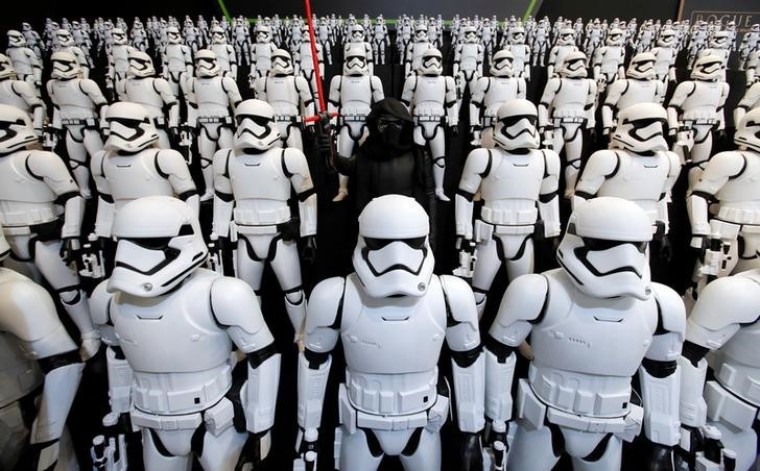
The refugee crisis in Iraq and Syria may turn out to be one of the defining crises of our generation. The violence and instability created through the Syrian Civil War, the collapse of order in Iraq, and the rise of ISIS have turned the already rising tide of immigration to Europe into a veritable flood.
The response across Europe and the rest of the world has varied. Arab Gulf states such as the UAE and Qatar have refused point-blank to take in any refugees. Countries such as Australia and New Zealand have decided to take in a limited number, accompanied by a strong vetting process.
Some however, have decided to open wide their gates to this mass migration of peoples—with the most notable (and influential) of these nations being Germany.
The German response
Germany is no stranger to mass immigration—following World War Two it received millions of refugees who had been expelled from their homelands in Eastern Europe.
The difference between then and now is the kind of people who were arriving in their nation. 70 years ago, they were almost exclusively ethnic Germans who spoke the same language and shared the same religion. Today, the immigrants arriving in Germany do not speak any German, are overwhelmingly Muslim in faith, and have virtually no cultural or historical ties to Germany.
Germany's actions in this matter are a social experiment on a grand scale—with no-one seemingly having any real idea if this massive social, cultural, and political gamble will pay off.
Will it work? If history is anything to go by, the answer is a resounding no. At best it is a highly reckless decision, at worst it foolishly shows a scant regard for history.
The intersection of religion and society
The problem facing Germany extends beyond issues of finding long-term housing or employment for these people. Rather, the concern stems from a fundamental inability to understand the role of religion in the social and political life of a society.
In their decision-making process, the German government have naively assumed that the religion of the immigrants coming to their country is of no particular importance—after all, aren't all religions pretty much the same anyway?
In this case, especially with such a large influx of immigrants, it is a question of huge importance. The fact that the vast majority of the refugees are Muslim has to be taken into account.
It seems that Germany have made the mistake of assuming that, as a religion, Islam is effectively interchangeable with Christianity (or Western Secular Humanism). Not only is this a lazy assumption, it is actually also condescending to Muslims.
While doctrinally there may appear to be some (superficial) similarities between Christianity and Islam, the way they operate within society are entirely different.
Unsurprisingly (as the religion that birthed it), Christianity fits very nicely within secular pluralist democracies. Christians are commanded to obey the governments and leaders appointed over them—whether Christian or non-Christian. This is because, according to Christian doctrine, a Christian's citizenship ultimately is found in the Kingdom of God—a future kingdom not of this world.
Because of this, there is no real conflict for the Christian between the temporal (earthly) and spiritual kingdoms. There is no need for the Christian to dominate the temporal sphere—because ultimately it is not their home.
The Islamic model
Islam operates in a completely different manner. Unlike Christianity, there is no distinction made between temporal and spiritual authority in this sphere—it all belongs to Allah.
Islam means 'submission' for a reason; its goal is for the entire world to submit to Allah. That does not necessarily mean that they need to convert to Islam; but it does mean submission to Islamic political authority.
The prophet Muhammad was an excellent exemplar of this philosophy. He was not simply a prophet, but was just as much a political leader, a legislator, and a military commander. Under his oversight, the entirety of Arabia was made to submit to Allah.
Under the oversight of his protégés, the entirety of North Africa, Syria, Iraq, Spain, Iran, and Afghanistan were made to do the same.
This idea of political Islam is fundamental to the entire faith—1400 years of history has not changed that. Look at why ISIS has proved to be irresistibly attractive to so many Muslims throughout the world. For all of its issues, they have seen that it is attempting to faithfully carry out the mandate proclaimed in the Qur'an: to submit the entire world to the authority of Allah.
Because of this, Islam as a faith is fundamentally opposed to a Western model of secular pluralist democracy. To suggest otherwise is frankly insulting. If (as Muslims believe) Allah has indeed revealed himself, showing Muslims how to order their political, social, and legal life, why on earth would they want to give that up for the Christian-based values of secular democracy?
In many ways Germany's actions in response to this crisis are noble and generous. However, they are also naïve, reckless and poorly thought out. While in the short term they may be seen as working towards solving the unfolding humanitarian crisis, history suggests the long-term effects will cause far more harm than good.

Tim Newman lives in Nelson, New Zealand. He holds an MA in History from Canterbury University in Christchurch. Tim is an award winning Christian Today writer and is a career journalist. Tim has given permission for his award winning history articles to be republished.
Tim Newman's previous articles may be viewed at http://www.pressserviceinternational.org/tim-newman.html